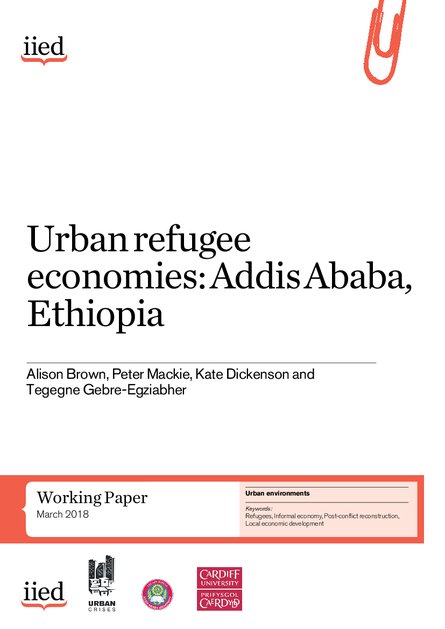
Over 60 per cent of the world’s refugees live in urban environments, but host governments often restrict their right to work, forcing urban refugees into precarious and often informal economy livelihoods. Through a case study of Addis Ababa, where refugees have no legal right to work, this research identifies the economic difficulties faced by urban refugees. Yet it finds that refugee economies are highly integrated into the city’s economy, making significant contributions. The research points to opportunities for humanitarian sector actors to enhance refugee economies today and in the future when Ethiopia implements its pledge to enhance access to employment for refugees.
Links
Resource collections
- UN Habitat - Urban Response Collection
- Urban Response - Urban Crisis Preparedness and Risk Reduction
- Urban Response Collection - Community Engagement and Social Cohesion
- Urban Response Collection - Economic Recovery
- Urban Response Collection - Environment and Climate Change
- Urban Response Collection - Housing, Land and Property
- Urban Response Collection - Urban Crisis Response, Recovery and Reconstruction
- Urban Response Collection - Urban Resilience